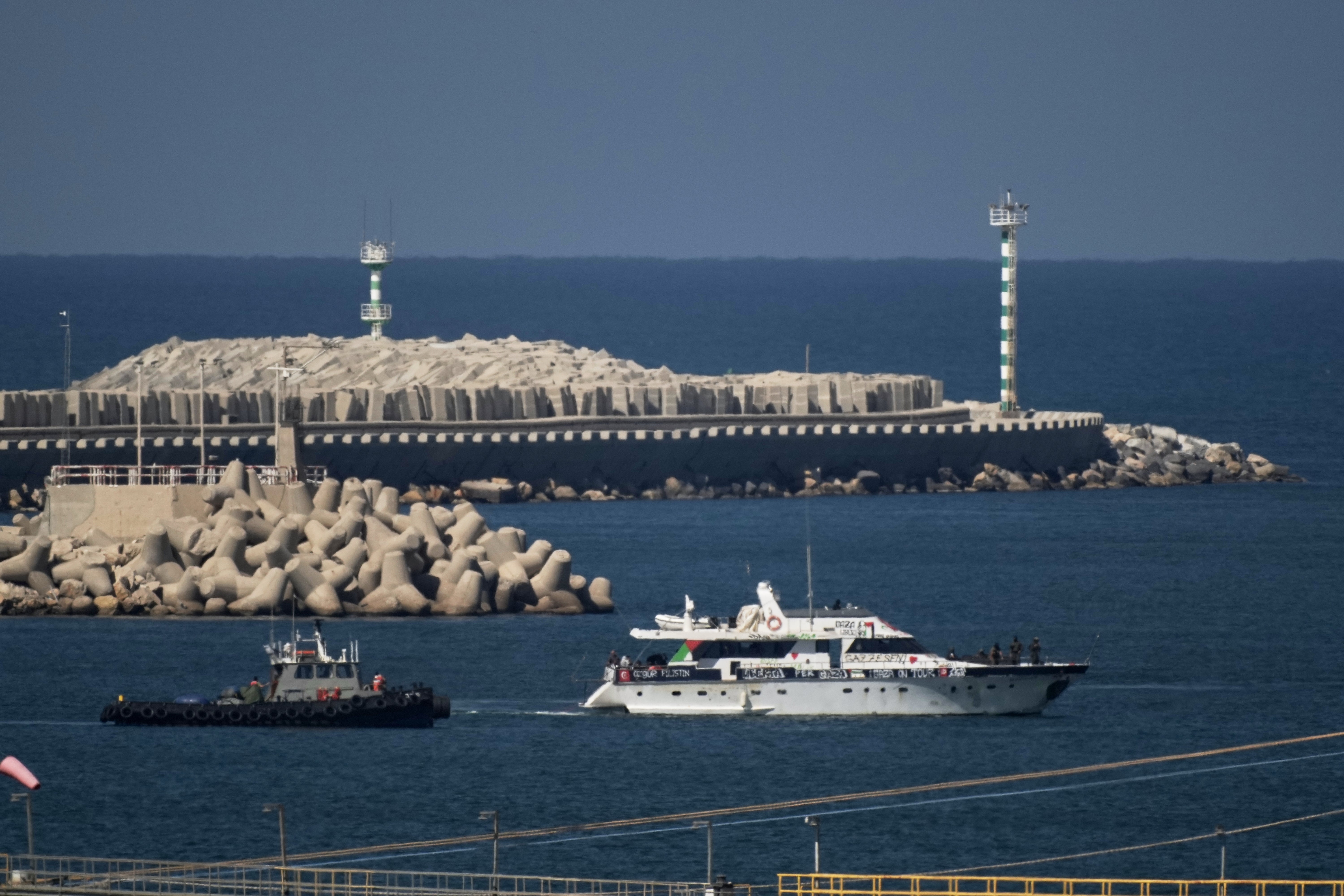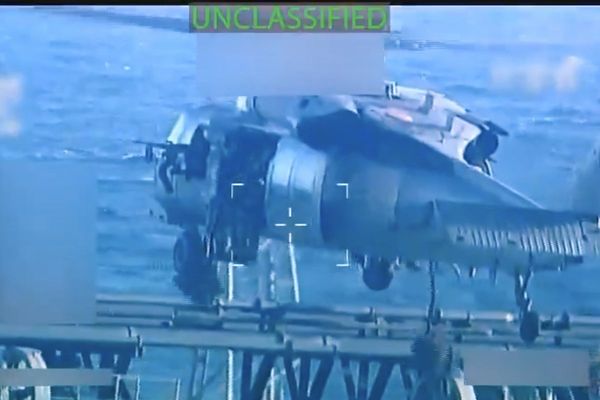Israel has dismantled a Gaza-bound flotilla carrying humanitarian aid and hundreds of activists after its naval forces intercepted the vessels, sparking debate over the legality of enforcing a naval blockade in international waters.
The Global Sumud Flotilla, made up of more than 40 civilian boats with an estimated 500 people onboard, was stopped in its tracks when most of the boats were intercepted by Israeli authorities about 70 nautical miles off Gaza’s coast.
The Israeli navy had earlier warned the activists via radio to turn back, as they risked “entering an active warzone”, adding: “If you continue and attempt to break the naval blockade, we will stop your vessel.”
The warning was effectively ignored and the Israeli military stormed the vessels and seized the activists, including Swedish campaigner Greta Thunberg, Nelson Mandela’s grandson, Mandla Mandela, and several European politicians.
World leaders and human rights groups have condemned Israel’s actions, saying they violated international maritime law.
Was the Gaza aid flotilla legal under international law?
The activists said their non-violent, civilian mission is lawful.
While they acknowledged they carried only a symbolic amount of aid, including baby formula, food and medical supplies, they said their goal is to establish a humanitarian corridor to facilitate the flow of aid into famine-stricken Gaza.
Israeli and European government officials had proposed alternative ways for the flotilla to deliver the aid, but the activists refused, arguing that Israel's strict control over Gaza's borders would prevent the supplies from reaching those in need.
Defending their mission, flotilla activist and spokesperson Thiago Ávila cited a provisional International Court of Justice ruling that ordered Israel to “take immediate and effective measures to enable the provision of urgently needed basic services and humanitarian assistance to address the adverse conditions of life faced by Palestinians in the Gaza Strip”.
He told the Israeli navy via radio shortly before the interceptions began that it was “not allowed by international law” to stop them. “Therefore we do not comply with your request," he said.
Only one boat appears to have crossed the 12-nautical-mile line marking territorial waters off Gaza, according to the Associated Press.
What about Israel’s interception?
The UN Convention on the Law of the Sea stipulates that a nation's territory does not extend beyond 12 nautical miles from its shores.
The convention says authorities may exercise control up to 24 nautical miles from land to prevent violation of customs, immigration, fiscal or sanitary laws.
Robbie Sabel, an international law expert and former legal adviser to the Israeli foreign ministry, said states generally do not have the right to seize ships in international waters, though there are exceptions, including during armed conflict.
He argued that even before the current war, Israel was already engaged in an armed conflict with Hamas, which, in its view, gave it the legal right to intercept ships suspected of violating its longstanding blockade of Gaza.
However, human rights groups have long criticised the blockade, calling it an unlawful form of collective punishment against the Palestinian population.

Can Israel legally block humanitarian aid to Gaza by sea?
The debate over the legality of Israel’s blockade remains a point of contention.
Adalah, a legal rights group in Israel representing the activists, said that “the abduction of peaceful civilians in international waters, constitutes a brazen violation of international law”.
Omer Shatz, an Israeli international law expert who teaches at Sciences Po University in Paris and co-litigated a previous flotilla case before the Supreme Court of Israel, told the Associated Press that even if the disputed siege of Gaza was considered lawful, “international law paves a humanitarian road from the high seas to Gaza”.
“If the basic needs of the population are not provided by the occupying power, there is a right to provide humanitarian aid, albeit under certain conditions,” he added.
He explained that Israel has the right to board and search the vessels to verify the cargo, as it does with aid trucks crossing into Gaza by land.
It is not the first time Israel has halted and confiscated humanitarian ships bound for Gaza.
Dozens of boats have attempted to reach the Palestinian territory in the past two decades, but none has reached it since 2008.
In 2010, an Israeli commando raid on the Mavi Marmara flotilla descended into violence. Eight Turkish activists and one Turkish-American were killed.
A subsequent UN report acknowledged “attempts to breach a lawfully imposed naval blockade place the vessel and those on board at risk", while also urging member states to be cautious in using force against civilian vessels.
It called on humanitarian missions to deliver aid through regular channels and said a country's naval blockade “must abide by their obligations with respect to the provision of humanitarian assistance”.
How is maritime law enforced?
Enforcing international maritime law is a challenge across the globe. Generally, only states can take other states to court for violations of the UN Convention for the Laws of the Sea.
But there are other legal frameworks and mechanisms individuals can use to seek justice, including those their state flags (the country where their ship is registered) are party to.
For example, Israel forcibly removing people from foreign-flagged vessels in international waters and taking them to Israel could be considered a crime, Mr Shatz said.
Greta Thunberg’s Gaza aid flotilla intercepted by Israeli forces as activists face deportation again
Goodness, Greta, what on earth’s the point of your Gaza flotillas?
What the latest data says about the rise in antisemitic hate crimes in the UK
Greta Thunberg Gaza flotilla live: Final Flotilla vessel Marinette intercepted
Israel intercepts the last boat from the Gaza flotilla as Israeli minister mocks the activists







